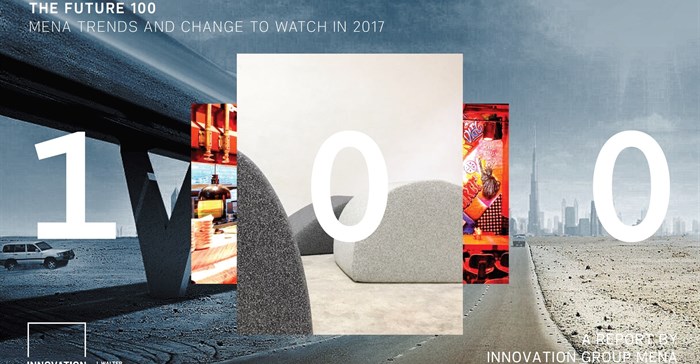J. Walter Thompson Innovation Group MEA released its ‘Future 100 Trends and Change to Watch in 2017' report, which highlights the top 100 consumer trends driving change across the Middle East and North Africa today.
“Gene Editing, New Mental Health, Halal Tourism and The Year of Giving”, are just a few of the trends that describe a region advancing social change for itself and others, through diversity and inclusion.
For brands wishing to keep pace, and tune in to current consumer attitudes, the report is a must read guide about sectors and personal needs that have been ignored for way too long.
Authored by Mennah Ibrahim, the 100 trends are categorised into 10 major consumer categories, including: travel and hospitality, retail, health, and food and drink.
Last year’s report outlined how societies are embracing topics previously considered taboo. Businesses heard and reacted. This year change is centered around aspects of life that consumers have firmly reclaimed.
An increasing demand for brands and lifestyle products to offer Muslim-centric options, has fueled a wave of innovative solutions from start-ups all over the world. Created by and about a diverse yet inclusive Muslim identity, they prioritise social justice and social impact within the business models.
Some of the trends include:
Gene Editing: The Arab world is poised to take off on the biotech frontier. Pioneering initiatives are surfacing that will fill the lack of Middle Eastern genomics data, and potentially revolutionize the diagnosis and treatment of diseases. The Saudi Human Genome Programme looks to sequence the genomes of 100,000 Saudis, to identify population-specific risk variants. This programme makes the Kingdom the region’s leading centre for human genetics research. And Egypt is planning an Egyptian reference database which they will use to micro-dissect Egyptian cancers.
New Mental Health: Suicide rates have skyrocketed within the last year with drivers of mental illness such as – violence, injustice, inequality and the impact of modern-day living - all taking their toll on MENA societies. One suicide is reported every three days in Lebanon; and in the UAE a 2013 Dubai Health Authority study uncovered that one in five teenage students in the emirate were showing symptoms of depression. Companies are now partnering with government organisations to offer consumers support; a much needed initiative when anxiety rates for Generation Z are already through the roof.
Halal Tourism: The tourism industry has woken up to the growing spending power of the Muslim traveler well beyond the Arab world. Asia and Europe already account for 87% of the entire market. Muslim business travel is expected to reach $22 billion by 2020, with Muslim travel overall expected to be worth $220 billion (MasterCard and Crescent Rating, Oct 2016). Closer to home, Mecca is gearing up as a MICE travel destination in Saudi Arabia, combining Umrah pilgrimage trips with business visits. Hospitality brands are making sure they do not miss out on the segment.
The Year of Giving: Underscoring the importance of humanitarian work, HH Sheikh Khalifa has decreed a philanthropic approach to strengthening social responsibility in the private sector, with The Year of Giving. Promoting the spirit of volunteerism and instilling loyalty and commitment in the next generation, it harks back to Sheikh Zayed’s legacy that measured generosity not only by donations, but by positive impact on a person’s life, on society and the UAE nation. Partnerships with the private sector are expected to bring something exceptional to the community, and contribute effectively to societal development.
Data the New Luxury: In an age that has become increasingly beholden to data, people are coming to consider their data as highly precious. Evolving past conventional security on devices, the psk series of jewelry have replaced diamonds and gems with something far more valuable per square millimeter – personal data. Founded by Wagenknecht and Sunde, the psk series shines a harsh light on the tech industry that relies on users’ data, instead of direct payment, to fund their operations. Entirely in line with our SONAR data which revealed that 81% of people in MENA believe they should be compensated for their data.
Mennah Ibrahim, MEA director of the Innovation Group, said, “Having documented how consumers are evolving for over five years now, it is incredible to watch the pace of change accelerate so much across the region.
“We are experiencing technological developments – and the ethical questions they bring; we are taking huge progressive societal steps across major markets; and we are embracing our polycultural, influential and forward driving momentum for hope.
“It’s not easy living in today’s constant state of uncertainty – not for brands, nor consumers. Yet the trends we have identified all point towards an exciting, collaborative and compassionate future.”
To view a sample of the report, click here. To download the full report, click here.












